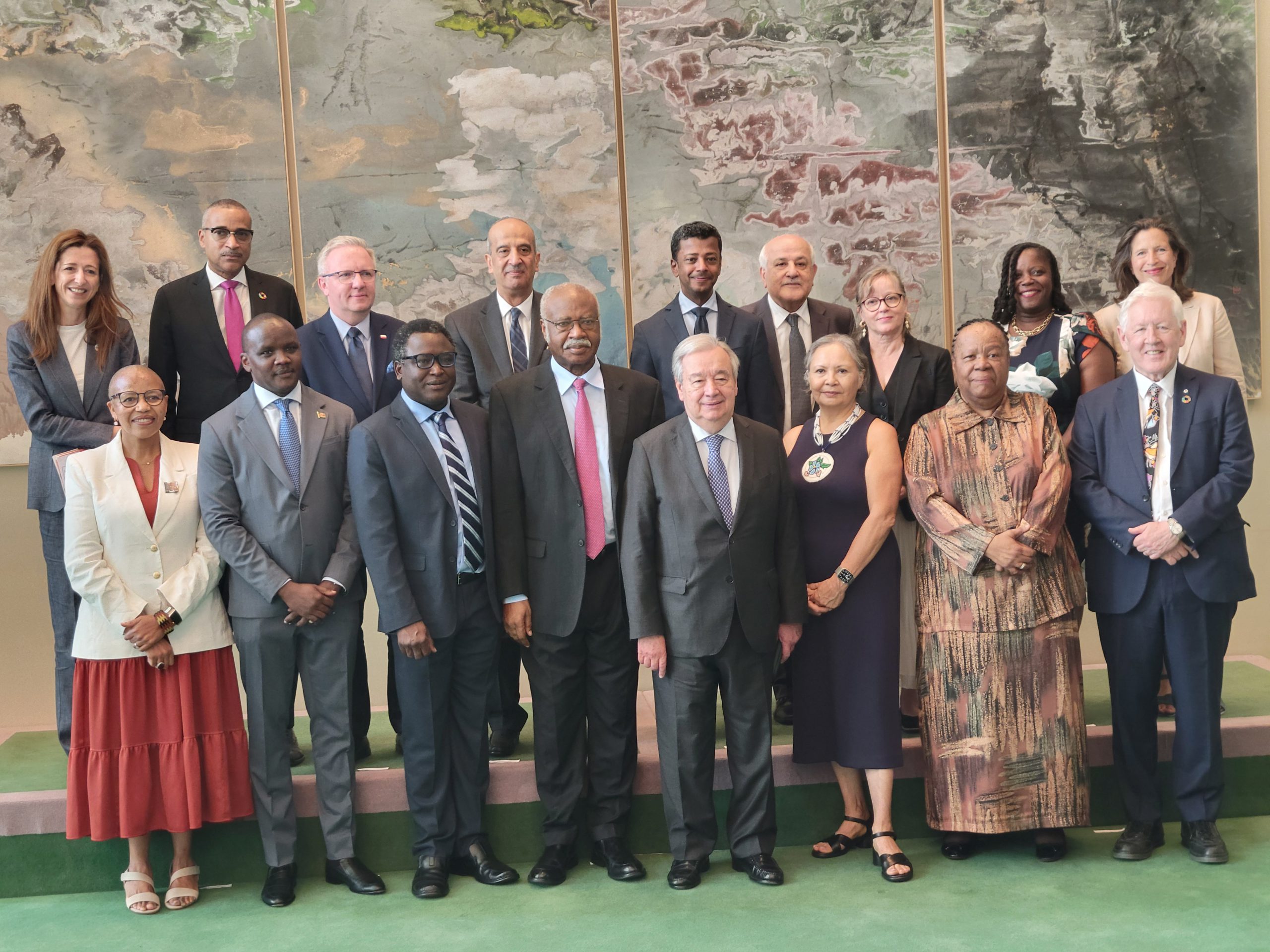St. Kitts and Nevis Observes Nelson Mandela International Day
The United Nations General Assembly convened on July 18, 2025, to commemorate Nelson Mandela International Day and bestow the prestigious UN Nelson Rolihlahla Mandela Prize. The theme for the year, “It’s still in our hands to combat poverty and inequity,” resonated throughout the ceremony, emphasizing the ongoing global struggle for social justice and equality, echoing Mandela’s lifelong dedication to these principles. St. Kitts and Nevis played a significant role in the event, with its Permanent Representative to the UN, Dr. Mutryce Williams, serving on the Prize Selection Committee. The event also marked the 80th anniversary of the United Nations, providing a poignant backdrop for reflection on the organization’s achievements and ongoing mission.
The proceedings commenced with opening remarks from the President of the UN General Assembly, Philemon Yang, who also chaired the Mandela Prize Committee. He invoked Mandela’s legacy as a call to action, urging attendees to draw strength from his courage and reaffirm their commitment to the principles enshrined in the UN Charter. Yang emphasized the importance of upholding human rights, dignity, equality, and justice, stressing the need to strengthen multilateralism for future generations. He also commended the Mandela Prize Committee, particularly highlighting the contributions of the five Eminent Personalities, which included the Governor General of St. Kitts and Nevis, Dame Marcella Liburd, for their invaluable wisdom and insights in identifying laureates who embody Mandela’s spirit. Their involvement underscores the global reach and significance of the prize.
UN Secretary-General António Guterres echoed these sentiments in a read statement, portraying Mandela as a beacon of reconciliation and unity despite enduring brutal oppression. He underscored the responsibility of the current generation to carry forward Mandela’s legacy of peace, justice, and human dignity, highlighting the importance of translating admiration into action. This call to action resonated with the overall theme of the day, emphasizing the urgency of addressing poverty and inequity in the spirit of Mandela’s unwavering dedication. Guterres’ words served as a reminder of the ongoing struggle for equality and the collective responsibility to uphold Mandela’s values.
Naledi Pandor, Chair of the Nelson Mandela Foundation and former South African Minister of International Relations and Cooperation, delivered the keynote address, encouraging attendees to engage in “good trouble,” a phrase reminiscent of Mandela’s rebellious spirit and his relentless pursuit of justice. This call to action resonated with Mandela’s Xhosa name, Rolihlahla, meaning “troublemaker,” highlighting his proactive approach to challenging injustice. Pandor’s address served as a powerful reminder of the need for continued activism and the importance of challenging the status quo in the pursuit of a more just and equitable world.
The culmination of the ceremony was the awarding of the UN Nelson Rolihlahla Mandela Prize to Brenda Reynolds of Canada and Kennedy Odede of Kenya. These individuals were recognized for their exemplary contributions to peace, collective action, and the fight against poverty and inequity, reflecting Mandela’s lifelong dedication to these causes. Their selection underscores the global nature of the struggle for social justice and the importance of recognizing individuals who embody Mandela’s values. The awardees represent a continuation of Mandela’s work, demonstrating that his legacy lives on in individuals committed to positive change.
Nelson Mandela International Day, officially recognized by the United Nations in 2009, serves as an annual reminder of Mandela’s unwavering commitment to human rights, equality, justice, reconciliation, and the fight against poverty and injustice. It is a global call to action, urging individuals to become active citizens and agents of change within their communities. The day encourages reflection on Mandela’s life and work, prompting individuals to consider their own roles in creating a more just and equitable world.
Mandela’s life, dedicated to the service of humanity, encompassed various roles: human rights lawyer, prisoner of conscience, international peacemaker, and the first democratically elected president of a free South Africa. His multifaceted career exemplifies his unwavering commitment to justice and equality. From his early legal work challenging apartheid to his leadership in post-apartheid South Africa, Mandela remained a steadfast advocate for human rights and reconciliation. His legacy continues to inspire individuals around the world to strive for a more just and peaceful future. The annual commemoration of Nelson Mandela International Day serves as a testament to his enduring impact on the world.
Share this content:












Post Comment